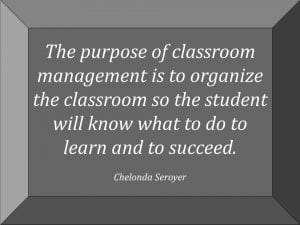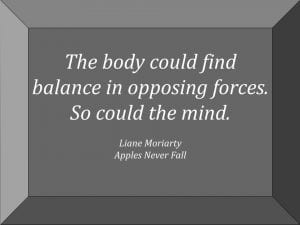I had a completely different path for my writing journey this week, but something struck me on Saturday morning’s run: as I reflected on the past week, the word “flexibility” kept coming to mind. Flexibility, or lack thereof, is something that I battle with frequently. When I think about my October 17, 2021 post, I Meant What I Said and I Said What I Meant, I realize that there is much overlap in my thoughts today, and my thoughts then.
Flexibility in the Classroom
We want to be firm but fair with our expectations, which means that there are situations that require little to no flexibility and others that require lots of flexibility. Classroom management is a tough yet essential skill to master, especially for a new teacher. Without effective classroom management, all of the best lesson plans go swiftly down the toilet. As I coach new teachers, I find it difficult at times to convey how to make it all work. I try to zero in on the essential pieces of classroom management rather than overwhelming new teachers with every aspect.
Just this week, I was talking with Chelsea about the importance of decreasing pauses or breaks because with each pause during instruction, those little kindergarten pumpkins quickly fill the time with behaviors that we want to avoid. Chelsea wasn’t sure what I meant by pauses, and I wasn’t sure how else to explain it. In essence, if we give them down time, they will fill it. So we want to be very intentional in our planning and delivery, knowing that we will need to be flexible and ready to “pivot” depending on how the students react to our instruction.
As Chelonda Seroyer said recently in an (amazing!) IMSE training: “The purpose of classroom management is to organize the classroom so the student will know what to do to learn and to succeed.” We know that the Number One influence on student success in the classroom is the teacher: a teacher who is a good classroom manager and who has positive expectations that ALL students will learn at high levels. So I might be inflexible with my expectations, but flexible when it is evident that the lesson I have designed or am following is not meeting the needs of my students.

Flexibility with Reading Instruction
The evidence is unwavering that systematic and explicit instruction will result in high achievement for our students. When schools adopt high quality curriculums, educators need to be hyper-aware that the scope and sequence prescribed has been developed based on research that proves that approach to the sequence of lessons works. We want to avoid exercising flexibility in the sequence of lessons, and in the components of each individual lesson. Flexibility comes into play as we monitor our students’ acquisition of skills, and recognize when more (or less) time is needed to spend with the skills in the lesson… also being aware of the scope and sequence and knowing when that set of skills may be covered again. It may not be appropriate to expect mastery after the first round of lessons.
Flexibility with reading instruction also comes in as we talk with our students about “rules” of the English language. We know that there are phonics rules that can be applied and work in most situations, but not all… so we want our readers to understand that flexibility is necessary if one rule is not working or making sense.
I am simultaneously delivering a PRESS reading intervention with “JP”, my 7th grade student who came to us in January unable to read, while at the same time coaching a teacher who is delivering a PRESS intervention to a younger group of students with Individualized Education Plans. She and I are both frustrated with the slow progress our students are making. Jennifer’s instinct has been to change the intervention in the hopes of seeing faster progress. My advice (based on experience, consultation with other coaches, and revisiting the research around effective intervention) to Jennifer is this: STAY THE COURSE! We are both three – four weeks into our interventions. If we alter the lessons now, we are moving away from the predictable, sequenced routine that the intervention spells out. We both must recognize that there are cognitive issues that get in the way of “quick” acquisition for the students we are working with. It is these very students that for too long, have suffered from frequent disruptive changes in instructional approaches… all with the best of intentions from educators.
Flexibility in General
If what I’ve written so far seems contradictory… and I think it does… it’s because my thoughts around flexibility are contradictory! This is why I write: to attempt to gain clarity around the jumbled-up mess that is my brain! This is also why I read: to gain clarity from the experiences of others, fictional or not. From my latest favorite book, written by one of my very favorite authors (her talent amazes me!), Apples Never Fall, by Lianne Moriarty:

I think what I’m working out in this post is that there are certainly times where exercising flexibility is important. As I watched high school juniors and their parents decorate the school for Saturday’s Prom on Friday night, it was abundantly clear that there were two camps of people: those who desired a clear plan with sequential steps for decorating, and those who were just happy to be there helping set up for a milestone event in these kids’ high school lives. I fell in between those two camps (as I so often do): I appreciated the easy-going nature of high school junior, Zander, who was on the planning committee. When asked questions like, “Would you like to have these lights strung here?” his reply was, “Sure! Whatever you think.” At the same time, I wanted to stay busy and get the job done in a timely manner – tough to do without a clear plan and LOTS of high school juniors and parents trying to coordinate the effort.
No matter my degree of flexibility or lack-thereof.. and this varies depending on the situation and my current mood, I know that in general, keeping a flexible mindset serves me well. Afterall, every time that I think I have everything figured out, perfectly mapped out and planned, a wrench is thrown in the mix, and all plans go out the window. The following quote came my way this week (not sure who gets credit), and it makes me smile every time I think about it:
